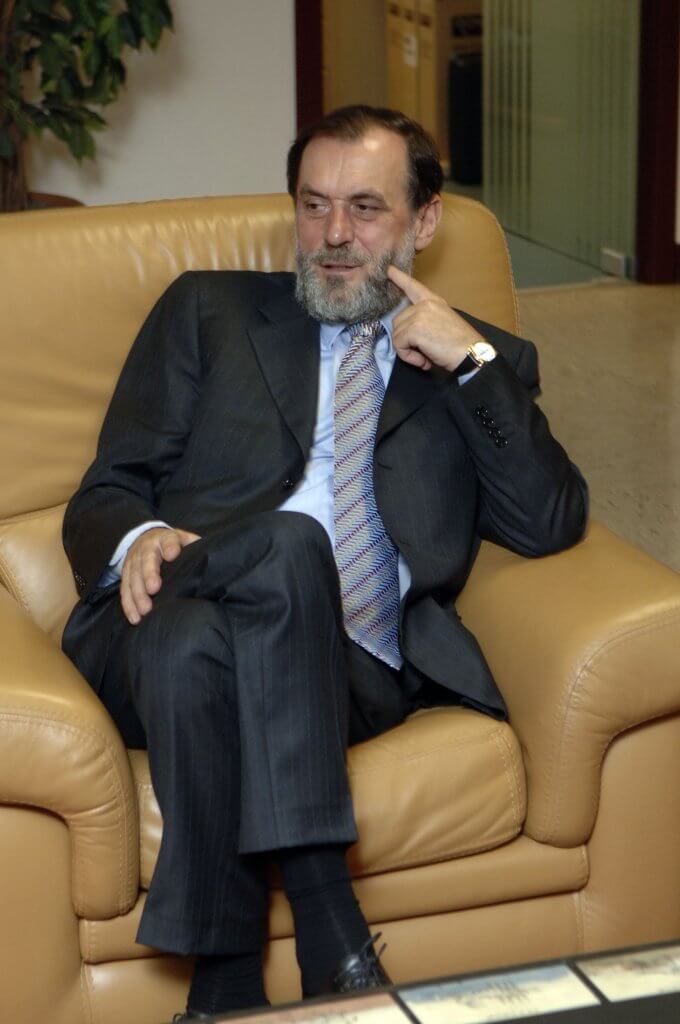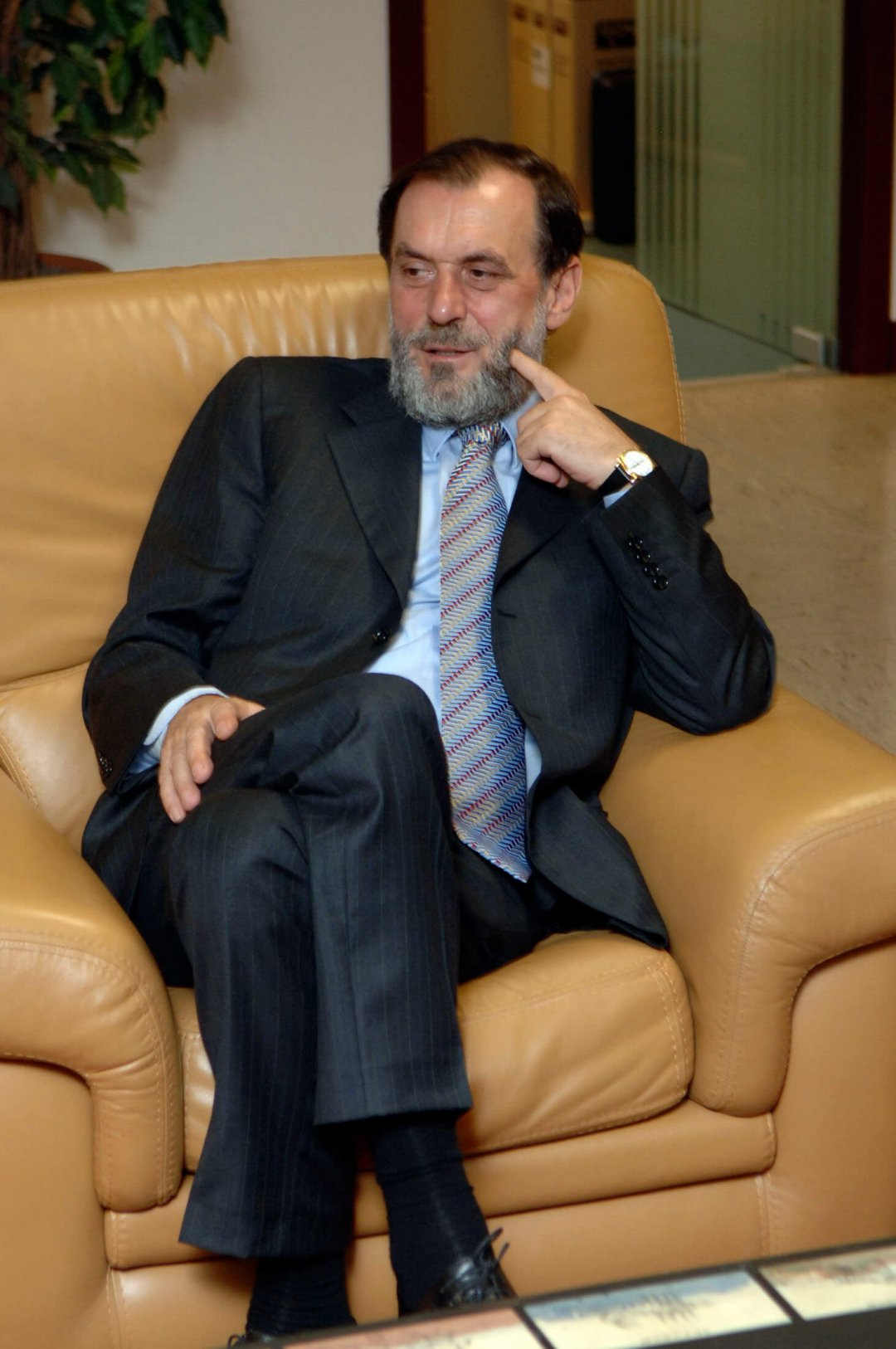
He gained fame, popularity and respect for what he wrote and spoke about the past. Hundreds of thousands of readers of his books and millions of viewers of films and series made based on his literature are proof that people love Vuk Drašković and gladly listen to what he has to say. But only about the past. When he talks about the present, and especially about the future, these same hundreds of thousands of fans turn into his biggest haters. Vuk Drašković has been dealing with this paradox for 30 years, and how he feels about it, is only his private matter and we should not be very interested in it. What should interest us is why we interpret the same man in such extremes, if he himself does not separate his thought along the lines of past-present-future.
It is possible that people do not believe in Vuk Drašković’s skill to describe the present well, and especially to assess the future. That would not be strange or unusual, because these are the criteria by which people judge politicians. But what if we reject Vuk’s “prediction” ability only because we do not want to accept the image he offers about us, not because it is incorrect, but because we do not like it? Because it destroys our entrenched notions of ourselves, others, the world. Then it is no longer a problem of Vuk Drašković, but of the rest of us. When the International Security Institute awarded the Euro-Atlantic Person of the Year award to Vuk 10 years ago, the Institute’s program director, Professor Zoran Dragišić, said: “Since he appeared on the public scene as a writer and later as a politician, Vuk Drašković has been exposed to volley of insults, insinuations, lies and slander. There were attempts on his life on several occasions, several of his closest associates and friends were killed, and hundreds of those who advocated the values promoted by Vuk Drašković were imprisoned, beaten and fired. He was passionately hated by those whose rights he fought for and he precisely pointed out all the catastrophic consequences that awaited them if they did not give up the disastrous policy that was pursued. When Vuk’s predictions came true, instead of sobering up and changing the political course, hatred towards Vuk became even stronger.”
But, even today, Vuk Drašković does not give up the fight for a better Serbia. And that much-needed sobering up.
With the TV series about King Aleksandar, which breaks ratings records, Vuk Drašković showed that he knows how to address the audience of the 21st century. Even if he talked about people and events from a hundred years ago. He was accepted as an interpreter of one of the most turbulent periods in the history of Serbia and Yugoslavia, but was he also accepted as a “prophet” who wanted the period between the two world wars to remain not just a historical textbook, but above all an instruction for the future? He has been doing that for the past few months, as long as his tour of the most watched TV programs has lasted (on the occasion of the book and series about King Aleksandar), but he has also been doing it for all the past decades, either as a politician or as a writer.
His emotionally charged politics and politically colored literature are inseparable parts of the same character. It will be difficult for you to accept one side of him and reject the other. It is possible, but then it is not the correct “reading” of Vuk Drašković. If you want to listen to Drašković when he talks about the Battle of Kosovo, then you can’t overhear him when he says that Vuk Branković was not a traitor, but remained the last defender of Kosovo. And that Prince Lazar did not go to Kosovo to die intentionally there and go to heaven, but went with the army to win because of earthly, not heavenly Serbia. “Heavenly Serbia is invented, it is an excuse for every head of church and state leader which brings evil to Serbia.”
He is not the only one, but he is certainly the loudest and longest-lived fighter against the abuse of myths and history for propaganda purposes. Since he sees the main root of Serbian troubles in the new century in that abuse and manipulation, Drašković does not have many followers when he interprets the present and projects the future. Because he asks us to change ourselves, that the problem is within us, and not the others. Vuk Drašković is a mirror in which we do not want to look at. And it’s easier for us to break it than to change it.
It is difficult to convince people who have been “bombarded” with stories for decades that the whole world is against Serbia that this story about the conspiracy is, after all, nonsense. “So where was that world conspiracy before Milosevic? Where was the world conspiracy against Serbs in 1914? ”, Drašković easily refutes a difficult and destructive narrative about Serbs as victims, but because of that he does not become more respected. Although he was the head of Serbian-Montenegrin, and then only Serbian diplomacy in its relatively prosperous period, you will almost never see Drašković in the media as an interpreter of important foreign policy events concerning Serbia. Instead of him, who spoke countless times at world forums and built a close personal relationship with the world’s most influential politicians, people who have never traveled abroad or received a guest during their term as foreign minister will speak to our citizens. And who also bear personal responsibility for the misfortunes of our people in the 1990s. Drašković’s SPO has been part of the ruling coalition in Serbia for years, although one of the smaller partners of the SNS. Aleksandar Vučić could have done without Drašković and without the SPO, his rating and the rating of his party would not have been damaged. But not everything is in votes and math. Drašković’s participation in the ruling coalition is undoubted proof that Vučić’s Serbia is pro-Western, in the cultural, political and economic sense. On the political scene of Serbia, whether in power or in opposition, there is no more pronounced pro-Western option than Drašković and his SPO. Pro-Western in the sense of classifying Serbia in the cultural and civilizational circle in which it lived its most glorious days and was the most prosperous in its history. When Drašković recalls those days, he is not talking about the past, but about the future. And when he talks about Kosovo and Lazar, and even about Slobodan Milošević and the tragic 90s, that should not be heard as a lecture on history, but as a plan for tomorrow. That is why Vuk Drašković is an important part of Serbia in the 21st century, one that knows very well what it wants, and not just what it does not want. And that is why the question is unnecesary – how did Vučić and Drašković ended up together on the same job.
